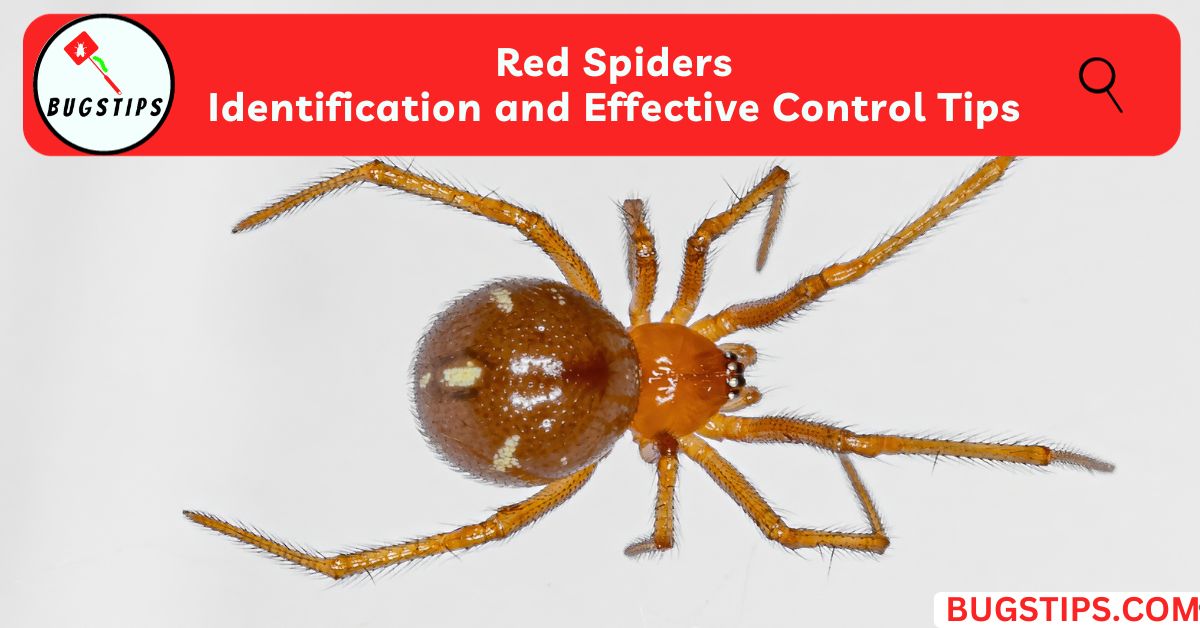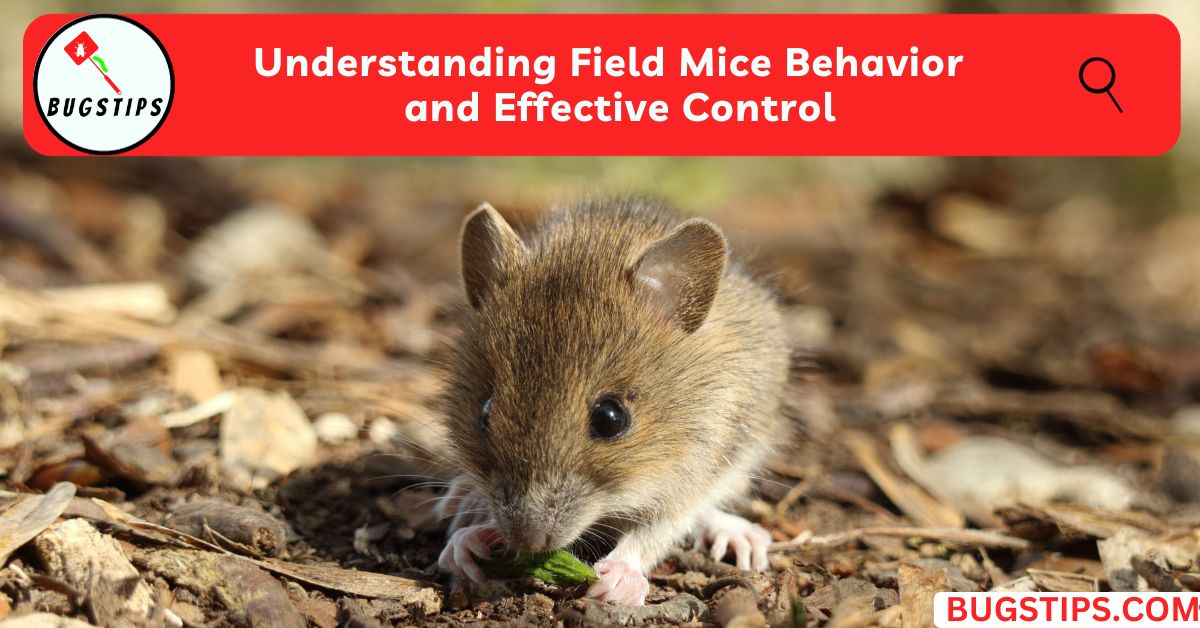This post may contain affiliate links which means as an Amazon Associate, this site may earn a small commission on qualified purchases made through links at no extra cost to you. Learn more on Affiliate Disclosure
Picture this: you’re driving down the road, minding your own business, when you suddenly spot a creepy-crawly spider on your dashboard. It’s enough to send shivers down your spine and make you want to jump out of your car.
But don’t worry, Spiders in cars are a common problem, especially during the warmer months when they are more active.
In this article, we’ll take a closer look at why spiders love to invade our cars, how to prevent them from getting in, and what to do if you find yourself facing an eight-legged arachnid in your vehicle.
Related Article – How to Keep Wasps Away From Car
Why Do Spiders Love Cars?
Spiders are naturally attracted to warm, dark, and secluded spaces, which makes cars an ideal location for them to take up residence.
Cars provide a safe haven for spiders to hide, feed and breed, away from predators and the elements. The engine compartments, air vents, and other nooks and crannies in cars offer ideal environments for spiders to thrive.
The warm engine bay of a car provides an ideal temperature for spiders to live in. The warmth generated by the engine, combined with the dark and secluded environment of the engine bay, makes it a perfect place for spiders to make their webs and hunt for prey.
In addition, the vibrations from the engine can attract insects, which in turn attract spiders.
The interior of a car also provides a suitable habitat for spiders. The seats, carpets, and dashboard can all provide safe and secluded spaces for spiders to hide and breed.
They can feed on the crumbs and debris left behind by passengers and can easily move around the car through small gaps and cracks.
Related Article – Little Black Bugs in My Car | Expert Removal Guide
So overall, spiders are attracted to cars because they provide a perfect environment for them to live and breed. Warm, dark, and secluded spaces provide a safe haven for spiders to thrive without the threat of predators or harsh weather conditions.
How Do Spiders Get into Cars?
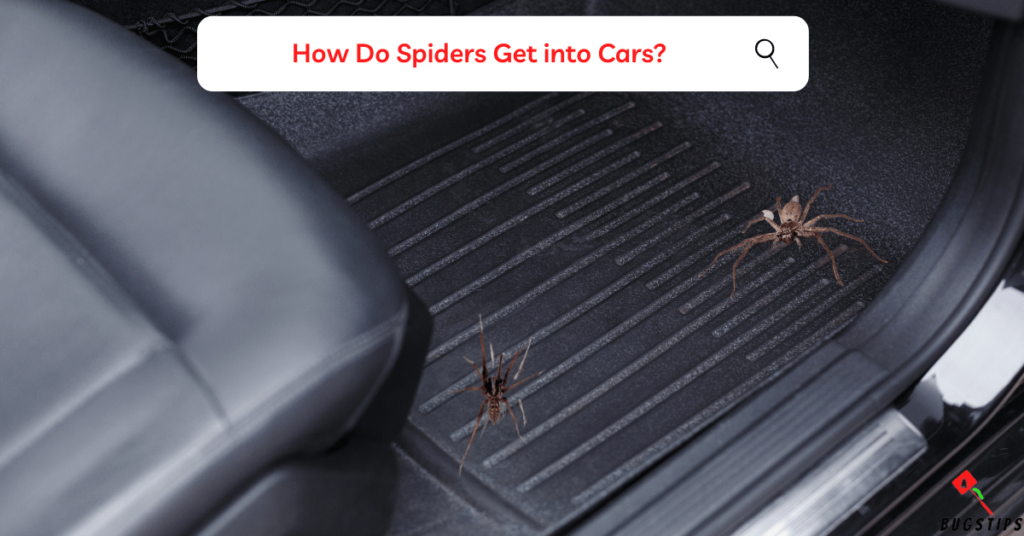
Spiders can get into cars in a variety of ways, but the most common way is through open windows or doors. Spiders are skilled climbers and can easily crawl up the side of a car and into an open window or door. They can also use trees or bushes near the car as a launching point to get inside.
Another way spiders can get into cars is through gaps in the bodywork. These gaps can be caused by rust or damage to the car’s exterior. Spiders can crawl through these gaps and make their way into the car’s interior.
Spiders can also be brought into cars unintentionally by passengers. They can hitch a ride on clothing, bags, or other items that are brought into the car. Once inside, they can easily find a suitable hiding place and begin to make themselves at home.
Overall, spiders can get into cars through a variety of ways, but the most common way is through open windows or doors. It's important to be vigilant and check for spiders before getting into your car, especially if you've left the windows open or parked near trees or bushes.
You May Also Like – Should You Squeeze the Pus Out of a Spider Bite?
Risks of Spiders in Cars
Having spiders in your car can pose potential risks. Let’s explore the dangers associated with spiders in cars.
Venomous Bites
One of the main concerns when it comes to spiders in cars is the possibility of venomous bites.
While most spiders found in cars are harmless, there are a few species that can cause serious harm.
For instance, the black widow and brown recluse spiders are known for their venomous bites, which can cause severe pain, muscle spasms, and in extreme cases, death.
Obstructed Vision
Another risk associated with spiders in cars is obstructed vision. Spider webs can easily accumulate in the corners of the windshield, side mirrors, and dashboard, obstructing the driver’s view.
This can be particularly dangerous while driving, especially if the spider suddenly crawls onto the driver’s face or hands, causing distraction and panic.
Allergic Reactions
In addition to venomous bites, some people may have an allergic reaction to spider bites, which can lead to swelling, hives, and difficulty breathing.
It’s important to note that allergic reactions can be life-threatening, so if you suspect a spider bite, seek medical attention immediately.
While most spiders found in cars are harmless, it's still important to be aware of the potential risks associated with them. If you spot a spider in your car, it's best to remove it carefully and promptly to prevent any potential harm. In the next section, we'll discuss what to do if you spot a spider while driving.
Related Article – Are Banana Spiders Poisonous? Should You Worry?
What to Do If You Spot a Spider While Driving?
If you’re driving and suddenly spot a spider in your car, it can be a scary experience. However, it’s important to stay calm and take steps to safely remove the spider while keeping your eyes on the road.
Here are some tips on what to do if you spot a spider while driving:
Stay calm: It’s natural to feel scared or startled but try not to panic. Keep your focus on driving and don’t let the spider distract you.
Pull over safely: If you feel that the spider is causing a significant distraction, find a safe place to pull over and address the issue.
Use a tool to remove the spider: It’s not safe to use your hands to remove a spider while driving. Instead, use a tool such as a tissue or paper towel to safely remove the spider.
Avoid using insecticide or sprays: Using insecticide or sprays while driving can be hazardous and should be avoided.
Check for more spiders: Once you’ve removed the spider, check your car for any additional spiders that may be hiding.
Remember, the safety of you and your passengers is the top priority when driving. If you're too scared or uncomfortable removing the spider while driving, find a safe place to pull over and address the issue.
Can Spiders Damage Your Car?
While spiders in cars can be a nuisance and potentially pose risks to drivers and passengers, they typically do not cause damage to the vehicle itself.
Spiders are not known to eat or chew on car materials, so their presence in your car is unlikely to cause any structural damage.
However, there are some cases where spider webs can accumulate in certain areas of the car, such as around the side mirrors or in the air vents. This buildup of webs can potentially block the air vents or cause visibility issues, which can be dangerous while driving.
In extreme cases, spider infestations may cause damage to certain components of the car, such as the air conditioning system or other electronics, but this is rare.
It’s important to note that while spiders may not directly damage your car, their presence can still pose risks to drivers and passengers.
Venomous spiders, such as the brown recluse or black widow, can bite and cause serious harm. Additionally, the presence of spiders can cause distractions while driving, which can lead to accidents.
So while spiders in cars may not typically cause damage to the vehicle itself, it's important to address the issue to ensure safe driving conditions. Regular cleaning and maintenance of your car can help prevent spider infestations and reduce the risks associated with their presence while driving.
Signs of Spider Infestation in Your Car
Having spiders in your car can be bothersome, and if left unattended, it can escalate into a severe infestation. It’s crucial to be aware of the indications of spider infestation in your car to take necessary measures as soon as possible.

Spider webs
The first sign that you may have spiders in your car is the presence of spider webs. These can typically be found in areas such as the corners of windows or near air vents. If you notice spider webs in your car, it’s likely that there are spiders present as well.
Egg sacs
Another sign of a spider infestation is the presence of egg sacs. These are small, white, or beige balls that can often be found in hidden areas such as under seats or in the trunk. If you spot any of these sacs, it’s important to remove them as soon as possible to prevent the spider population from growing.
Dark spots
You may also notice small, dark spots on your car’s interior or exterior. These could be spider droppings, which are often found in areas where spiders are active. If you see these spots, it’s a good idea to clean them up and inspect the area for other signs of spider activity.
Lastly, if you’ve noticed an increase in the number of spiders you see inside or around your car, it’s a good indication that you have an infestation. Spiders tend to prefer warm, dark, and secluded areas, so be sure to thoroughly inspect any areas that fit this description.
In summary, signs of a spider infestation in your car include spider webs, egg sacs, droppings, and an increase in spider sightings. If you notice any of these signs, it's important to take action to prevent the infestation from growing.
Common Car Spiders That Get Inside Cars
It’s not uncommon to find spiders hiding in your car, especially if you live in an area with a high spider population. There are several species of spiders that are known to get inside cars, and it’s helpful to know which ones you might encounter.
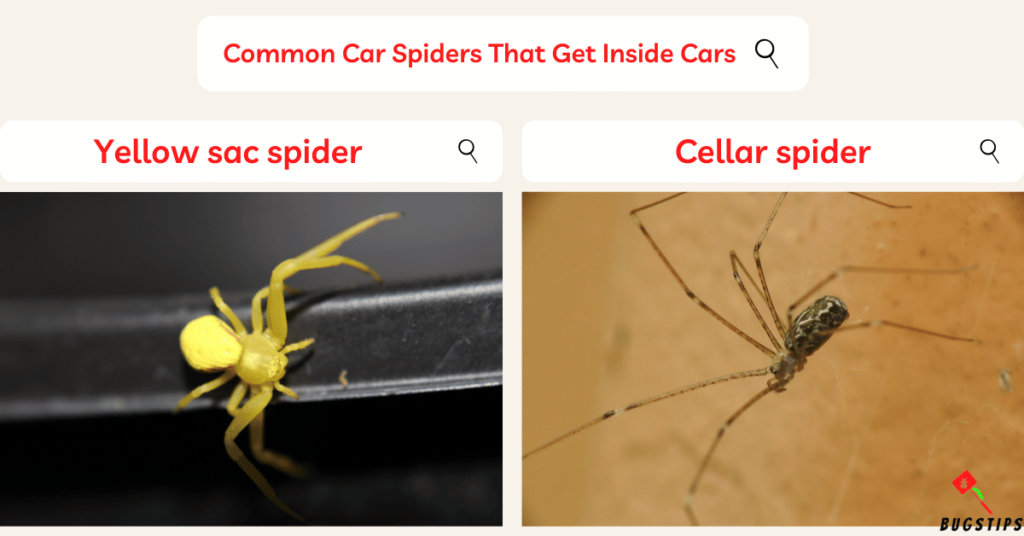
Yellow sac spider
One common species is the yellow sac spider, which is a small, yellow, or tan spider that likes to build nests in cars.
They often make their homes in the gaps and crevices of your car’s interior, such as behind dashboard panels or in the air conditioning vents.
Cellar spider
Another common spider is the cellar spider, also known as the daddy longlegs. These spiders are known for their long, thin legs and can often be found hiding in the corners of your car’s interior.
They are generally harmless to humans but can be a nuisance when they start to build webs in your car.
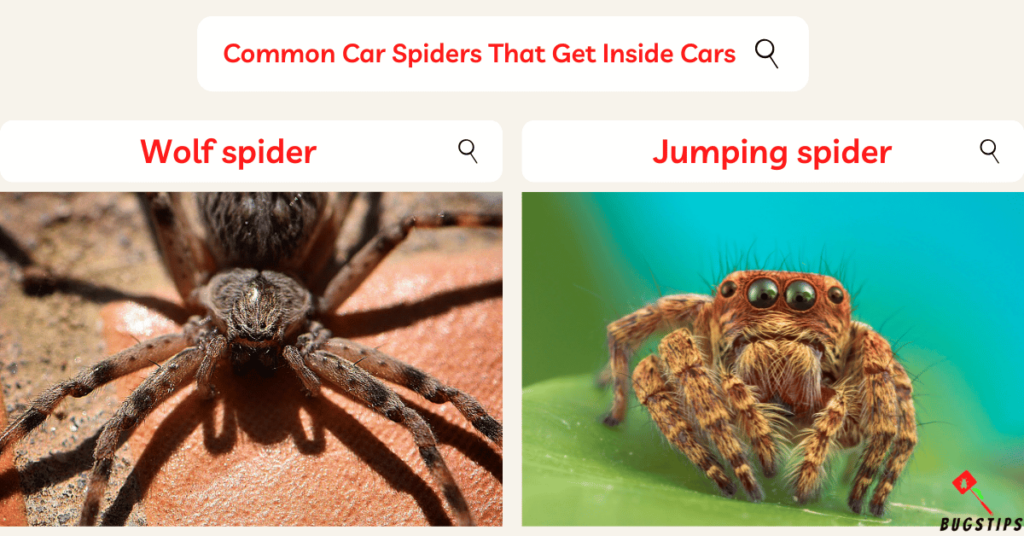
Wolf spider
The wolf spider is another species that can be found inside cars. These spiders are larger than most car spiders and are known for their speed and agility.
They are often found hiding in dark areas of your car, such as under the seats or in the trunk.
Jumping spider
Lastly, the jumping spider is a small, colorful spider that can often be found on the exterior of your car. They are known for their impressive jumping abilities and are harmless to humans.
They are often attracted to the light reflecting off of your car’s paint and may crawl inside if given the opportunity.
Related Article – How to Get Rid of Spiders Under Eaves
While these are some of the most common species of spiders found in cars, there are many other species that you may encounter. It's important to remember that not all spiders are harmful, and many of them are actually beneficial because they prey on other insects.
What Spiders Nest in Cars?
If you’re worried about spiders nesting in your car, it’s important to know which species are most likely to do so. While many spiders can be found inside cars, some are more likely to build nests and lay eggs in the nooks and crannies of your vehicle.
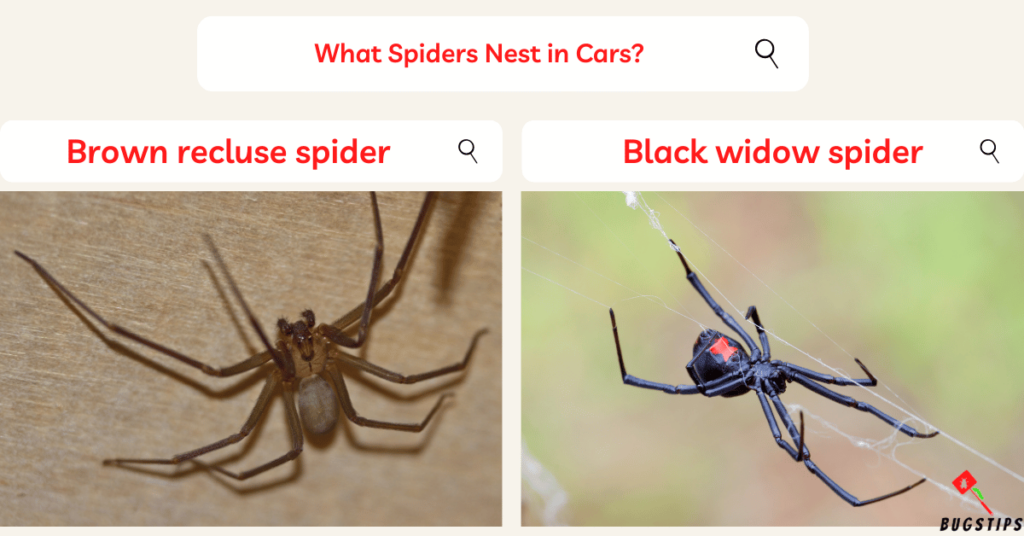
Brown recluse spider
One of the most notorious spiders known to nest in cars is the brown recluse. These spiders are attracted to dark, secluded areas, making the inside of a car a perfect spot for them to set up camp. They often build webs in areas like the dashboard, visors, and door panels.
Black widow spider
Another species that can be found nesting in cars is the black widow. While less common than the brown recluse, black widows have been known to build nests in car engines and other dark, enclosed spaces. Their webs can often be found around the wheels or under the hood of a car.
Other spiders that have been known to nest in cars include the cellar spider, wolf spider, and hobo spider. These spiders can often be found in the corners of the car’s interior or under the seats.
It's important to note that while some spiders are more likely to nest in cars than others, the risk of a spider infestation is still relatively low. However, if you do suspect that spiders have made a nest in your car, it's best to have a professional handle the situation to ensure safe removal.
How Long Will a Spider Stay in Your Car?
If you’ve spotted a spider in your car, you might be wondering how long it will stick around. Unfortunately, there’s no one-size-fits-all answer to this question as it can depend on various factors.
Some spiders may only be passing through and will quickly exit your car as soon as they find an opportunity. Others may choose to stick around and make themselves at home, especially if they find a suitable habitat with food and shelter.
Factors such as the spider species, the availability of food, and the overall condition of your car can all play a role in determining how long a spider will stay.
For example, spiders that typically feed on insects may be more likely to stay if there are plenty of bugs in your car.
As explained above It’s worth noting that some spider species may be more likely to nest in your car, which could prolong their stay. For example, the brown recluse spider is known to build webs and nests in secluded areas of cars, such as under the seats or in the trunk.
In general, if you've spotted a spider in your car, it's best to take action as soon as possible to remove it and prevent any potential infestations. Even if the spider is only passing through, leaving it to roam around could increase the chances of it laying eggs or attracting other spiders.
Can Spiders Survive in a Car Overnight?
Many people wonder if spiders can survive in a car overnight, especially if they forgot to roll up their windows or if the car has been parked for an extended period. The answer is that it depends on several factors.
Firstly, the type of spider matters. Some spiders are more resilient than others and can survive for longer periods without food or water.
And the temperature inside the car plays a significant role in determining how long a spider can survive. If the temperature is too hot or too cold, it can be fatal for the spider.
In general, spiders can survive in a car overnight, but it’s not guaranteed. They may seek shelter in the car’s nooks and crannies, but they will eventually need to find food and water to survive for an extended period.
It's important to remember that leaving spiders in your car for extended periods can lead to infestations and potential health hazards.
You’ll Also Like – Can a Spider Die from Falling?
How Long Can Spiders Survive Inside a Closed Car?
Spiders are known for their resilience, and many people wonder how long they can survive inside a closed car. The answer is that it depends on several factors, such as the spider species, the temperature inside the car, and the availability of food and water.
Generally, spiders can survive for several days or even weeks without food or water, but they require oxygen to live.
In a closed car, the oxygen levels can quickly deplete, which can be fatal for the spider. However, some species of spiders are more resilient than others and can survive for longer periods.
The temperature inside the car is also a crucial factor. Spiders are cold-blooded and cannot regulate their body temperature, so they rely on external sources of heat.
If the car is parked in direct sunlight, the temperature can quickly rise and become too hot for the spider to survive. On the other hand, if the car is parked in a cold environment, the spider may become sluggish or go into a dormant state, conserving its energy until more favorable conditions arise.
Related Article – Can a Spider Die from Falling?
So the length of time that a spider can survive inside a closed car depends on several factors, including the spider species, temperature, and available resources.
How to Get Spiders Out of Your Car
If you’ve found spiders in your car, don’t worry, there are several ways to safely and effectively remove them. Here are some tips on how to get spiders out of your car.
Use a spider catcher
One of the easiest and safest methods is to use a spider catcher. This device uses a long handle with bristles at the end to gently catch the spider without harming it.
Once you have captured the spider, you can release it safely outside.
Use a vacuum cleaner
Another method is to use a vacuum cleaner with a hose attachment. Simply suck up the spider with the hose and then dispose of it.
Make sure to clean the vacuum afterward to avoid any spider remains or webs.
Try using essential oils
If you prefer a more natural approach, you can try using essential oils, such as peppermint or tea tree oil, to repel spiders.
Mix a few drops of the oil with water in a spray bottle and apply it around the car. Spiders dislike the smell of these oils and may be deterred from entering your car.
Related Article – How to Trap Spiders at Home: Only Guide You Need
It's important to avoid squishing the spider as this can release its eggs or cause it to release venom. Additionally, spraying pesticides in your car can be dangerous to your health and should be avoided.
How to Keep Spiders Out of Car Mirrors
There are some simple steps you can take to keep spiders out of your car mirrors.
Use a spider-repellent spray
One effective method is to use a spider-repellent spray. You can purchase a commercial spider-repellent spray or make your own using essential oils like peppermint, tea tree, or lavender.
Simply spray the solution around the edges of your car mirrors and the spiders will be deterred from coming near.
Use spider deterrent sachets
Another option is to use spider deterrent sachets. These sachets are typically made with natural ingredients like cedar wood, lavender, or citrus peel, which spiders dislike. Place the sachets inside your car near the mirrors to keep spiders at bay.
Park your car in a well-lit area (if possible)
In addition, consider parking your car in a well-lit area. Spiders are less likely to take up residence in your car mirrors if they are exposed to bright light.
You can also park your car away from trees and bushes, as spiders tend to hang out in these areas.
How to Get Rid of Spiders Hiding in Your Car
If you’ve spotted a spider or two in your car, chances are there may be more hiding in hard-to-reach areas such as the trunk, under the seats, or in the dashboard.
Getting rid of spiders in these areas can be a bit tricky, but with some effort and the right tools, it can be done safely and effectively.
One technique for locating spiders in your car is to use a flashlight and a mirror to check the areas that are difficult to see. Look for spider webs, egg sacs, or even the spiders themselves.
Another option is to use sticky traps or glue boards, which can be placed in areas where spiders are likely to hide.
Once you have located the spiders, the next step is to remove them from your car.
One method is to use a spider catcher, which is a device designed specifically for capturing spiders without harming them.
Another option is to use a vacuum cleaner with a long hose attachment to suck up the spiders.
It’s important to remember to handle spiders carefully and avoid touching them directly, as some species of spiders can bite and their venom can be harmful.
Also, be sure to dispose of spiders in a way that is safe for both you and the environment.
How to Get Rid of Spiders Under Car
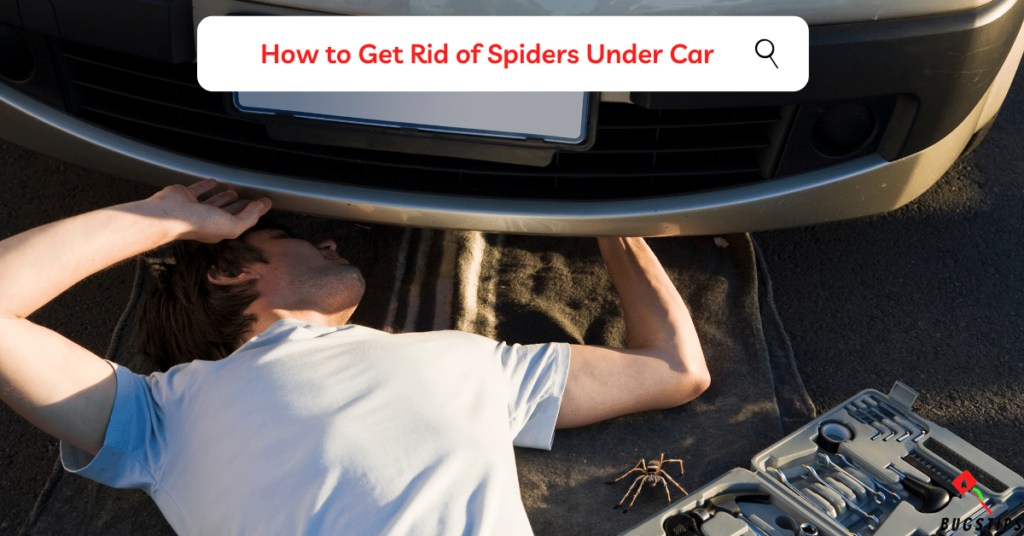
If you’ve noticed spiders making their home under your car, it can be quite unsettling. Not only can it be creepy to think about spiders crawling around your vehicle, but it can also be dangerous if the spiders are venomous. Fortunately, there are steps you can take to safely and effectively remove spiders from under your car.
The first step is to locate where the spiders are hiding. Look for webs or spider activity around the wheels, under the hood, or in any other dark crevices under the car. Once you’ve identified the area, you can begin to take action.
Use natural repellents
As explained above one option is to use natural repellents. Spiders are repelled by certain scents, such as peppermint, vinegar, and citrus.
You can create a solution of water and essential oils, such as peppermint or citrus, and spray it around the affected areas under your car. This can help to discourage spiders from setting up their home in these areas.
Use a vacuum cleaner
Another option is to physically remove the spiders using a vacuum cleaner. Attach a long hose to the vacuum and use it to suction up any spiders or webs.
Be sure to dispose of the contents of the vacuum immediately and away from your car to prevent the spiders from returning.
Call in a professional exterminator
If you’re not comfortable removing the spiders yourself or if you’ve tried these methods and they haven’t been effective, it may be time to call in a professional exterminator.
They can assess the situation and use specialized equipment and chemicals to remove the spiders safely and effectively.
How to Kill a Spider in Your Car
If you’ve exhausted all the methods to get rid of spiders from your car and none of them seem to work, or if you simply just want to kill the spider you found in your car, there are a few effective and humane ways to do so.
Before resorting to killing the spider, it's important to note that it's not a good idea to do so. Not only can it make a mess in your car, but you will also have to clean your car afterwards.
The first method is to use an insecticide spray that is specifically designed to kill spiders.
These sprays usually contain pyrethroids, which are natural insecticides that are derived from chrysanthemum flowers. When using an insecticide spray, make sure to read the instructions carefully and apply it in a well-ventilated area.
Another method is to use a rolled-up newspaper or magazine to swat the spider.
This method may seem simple, but it can be quite effective if done correctly. Make sure to aim for the spider’s body and not its legs to ensure a quick and humane kill.
If you’re uncomfortable handling spiders or simply want a professional to handle the job, consider calling a pest control company. They have the tools and expertise to safely remove spiders from your car without harming them or causing any damage.
Again It's important to note that while killing spiders may seem like the easiest solution, it's not always necessary or recommended. Spiders play an important role in the ecosystem and help control other pest populations, so it's always best to try and remove them safely and release them back into the wild if possible.
How to Keep Spiders from Making Webs on Your Car
If you’re tired of finding spider webs on your car every time you go for a drive, there are a few things you can do to prevent spiders from building their webs on your vehicle.
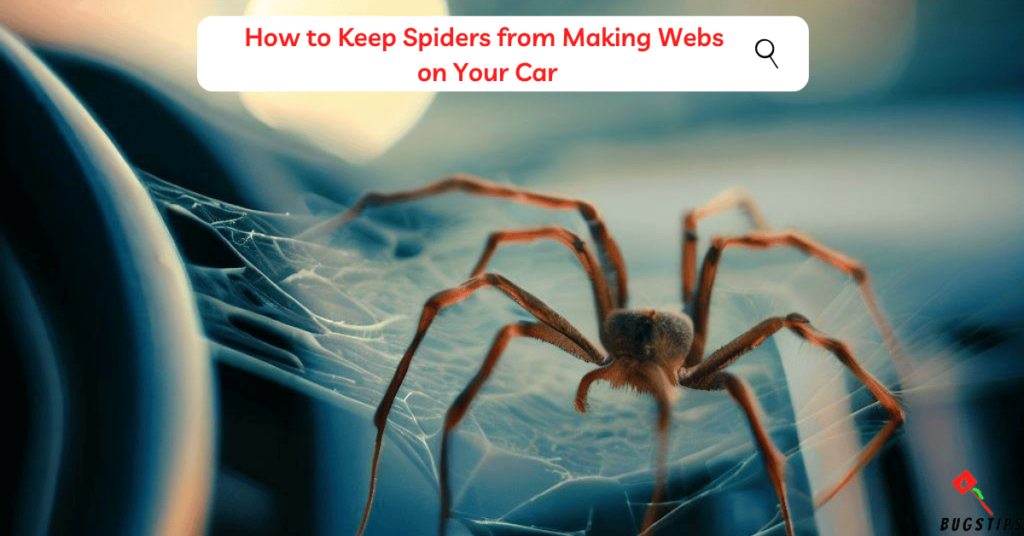
Wash your car regularly
One of the simplest ways to keep spiders from making webs on your car is to wash it regularly.
This will not only remove any existing spider webs, but it will also remove any debris or dirt that might attract spiders in the first place.
Using a car wash soap will help to remove any dirt or grime that has accumulated on your car’s surface, making it less appealing to spiders.
Apply a layer of wax
Another way to keep spiders from making webs on your car is to apply a layer of wax.
The slick surface of the wax will make it difficult for spiders to attach their webs to your car’s exterior.
Additionally, a layer of wax will make it easier to remove any spider webs that do manage to attach themselves to your car.
Use a natural spider repellent
Another effective way to keep spiders away from your car is to use a natural spider repellent.
Some natural repellents that have been found to be effective against spiders include peppermint oil, vinegar, and citrus. Simply mix the chosen repellent with water and spray it on the areas of your car where spiders are likely to build their webs.
Best Spider Repellent for Car – Products
If you’re looking for easy and time-saving methods to get rid of spiders in your car, you might want to consider using products that are specifically made to repel or trap those pests.
Fortunately, there are many commercial spider repellents available on the market, from sprays to sachets to electronic devices, that can help keep your car spider-free.
To save you the time and effort of researching and comparing products, we’ve compiled a list of some of the best spider repellents for use in your car.
So here we’ll provide an overview of these products, including their features and effectiveness, to help you make an informed decision.
Ortho Home Defense Insect Killer
This insecticide spray is highly effective against spiders and can be used both inside and outside of your car. It features a non-staining formula and can provide protection for up to 12 months.
Simply spray the product on the areas where spiders are likely to hide, such as the floor mats, seats, and trunk, to eliminate them.
Stay Away Spiders Repellent
This product uses a combination of essential oils to naturally repel spiders from your car.
It features a convenient sachet design that can be placed in areas where spiders are likely to enter, such as the glove compartment or under the seats. The repellent lasts for up to 30 days and is free from harmful chemicals, making it a safe and eco-friendly option.
Ultrasonic Pest Repeller
This electronic device emits high-frequency sound waves that are unpleasant to spiders, causing them to leave the area.
The repeller is easy to install and operates silently, making it a great option for use in your car.
It also features a sleek and compact design that won’t take up much space. The device is effective against a wide range of pests, making it a versatile solution.
These products can be highly effective in repelling spiders from your car. Depending on your preferences, you can choose from an insecticide spray, a natural repellent, or an electronic device. Regardless of which option you choose, these products can help to keep your car spider-free and provide peace of mind while driving.
Can You Use Chlorine Bomb for Spiders in the Car?
Many people wonder if a chlorine bomb can be used to get rid of spiders in their car. While this method may be effective in killing spiders,
it is not recommended due to the potential risks and hazards associated with it.
Chlorine bombs are typically made by mixing bleach and an acidic substance, such as toilet cleaner or muriatic acid, in an enclosed container. When the two substances mix, they produce a gas that can be lethal in high concentrations.
Using a chlorine bomb in your car can be dangerous and potentially harmful to your health, as well as the health of anyone who may come in contact with the gas. and chlorine gas can also cause damage to the interior of your car.
There are many safer and more effective methods for getting rid of spiders in your car, such as using natural spider repellents or using a vacuum to remove them.
It is important to prioritize your safety and health when dealing with pest problems and to avoid using harmful or dangerous methods.
As pest control professionals, we do not recommend using a chlorine bomb in your car to get rid of spiders. If you still decide to try it out, do so at your own risk and take all necessary precautions. We advise seeking the help of a professional exterminator who can provide safe and effective solutions for spider infestations in your car.
Preventing Spiders from Entering Your Car
After successfully getting rid of spiders from your car, it’s important to take steps to prevent them from entering again.
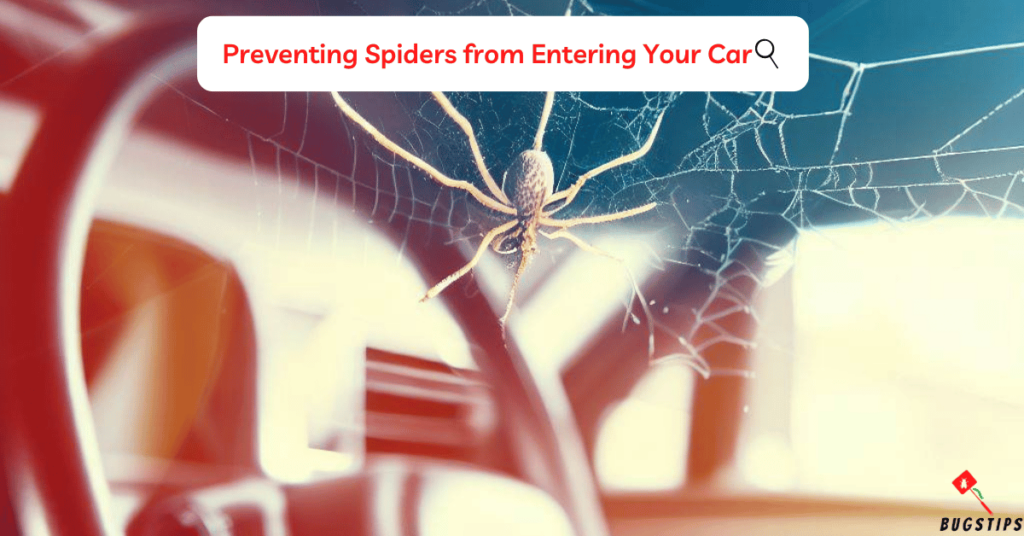
Here are some tips to help prevent spiders from entering your car in the first place.
Keep your car clean
Spiders are attracted to clutter and mess, so make sure to keep your car clean and tidy. Regularly vacuuming and wiping down surfaces will help remove any potential hiding spots for spiders.
Park in well-lit areas
As mentioned earlier, Spiders are less likely to enter a car that is parked in a well-lit area. Avoid parking in dark or secluded areas where spiders are more likely to be found.
Seal up any openings
Inspect your car for any cracks, crevices, or openings where spiders can enter. Seal up any openings with caulk or weatherstripping.
Keep windows and doors closed
Spiders can easily crawl into your car through open windows and doors. Make sure to keep your windows and doors closed when parking your car.
So by following these simple tips, you can help prevent spiders from entering your car and ensure that your driving experience remains spider-free.
Final Thoughts
Spiders in your car can be a nuisance and even a safety hazard, but there are many ways to get rid of them and prevent them from returning. Regular cleaning and maintenance of your car and garage can go a long way in keeping spiders away.
If you do encounter spiders in your car, there are many effective products and techniques available, such as sprays, traps, and electronic devices. However, it’s important to remember that some methods, such as using a chlorine bomb, can be dangerous and are not recommended for amateur use.
As pest control professionals, we advise seeking the help of an expert if you’re unsure about how to proceed. By following these tips and taking preventive measures, you can ensure that your car remains spider-free and comfortable to drive.
FAQs
Are spiders in cars dangerous?
Generally, spiders found in cars are not dangerous to humans. However, some species of spiders, such as black widows and brown recluses, can be venomous and potentially harmful if bitten. It’s important to take precautions when handling spiders in your car or garage.
Why do spiders get in my car?
Spiders may enter your car in search of shelter, warmth, or prey. They can also be transported in on objects like clothes, bags, or other items that have been left outside.
How do spiders get into closed cars?
Spiders can enter your car through small openings such as windows, doors, or vents. They can also crawl through tiny gaps in the exterior of your car, such as around door frames or through cracks in the bodywork.
Where do spiders hide in cars?
Spiders can hide in a variety of places in your car, including under seats, inside air vents, and in the trunk or engine compartment. They may also create webs in hard-to-reach areas such as the corners of windows or door frames.
Can spiders lay eggs in my car?
Yes, some species of spiders may lay eggs in your car if they find a suitable place to do so. This is more likely to occur if your car is left unused for an extended period of time.
What is the most common spider found in cars?
The most common spider found in cars is the cellar spider, also known as the daddy longlegs. These spiders are harmless to humans and feed on other insects.
How do I get rid of spiders in my car fast?
The fastest way to get rid of spiders in your car is to use a spider spray or vacuum them up with a handheld vacuum cleaner. It’s also important to clean your car regularly to remove any food or debris that may attract spiders.
Where to buy chlorine bombs for car spiders?
We do not recommend using chlorine bombs for spider control in your car. It is best to contact a professional exterminator for safe and effective spider control.
Do spiders live in car mirrors?
Spiders may occasionally make webs or nests inside car mirrors, but this is not a common occurrence.
Can spiders survive hot cars?
Spiders can survive in hot cars for short periods of time, but prolonged exposure to high temperatures can be lethal to them. It’s important to keep your car cool and well-ventilated to discourage spider activity.
Resources – (for further reading)
Michigan State University – Yellow sac spiders, Wolf Spider – Plant & Pest Diagnostics
Mo.gov – Cellar Spiders, Brown Recluse (Violin Spider)
MSD Manuals – Spider Bites – Injuries and Poisoning


